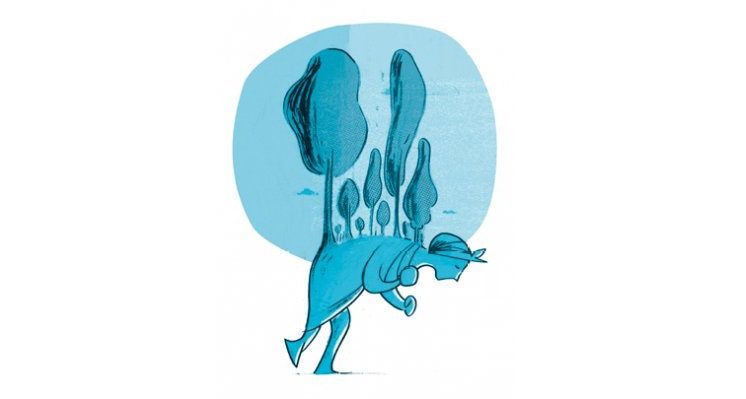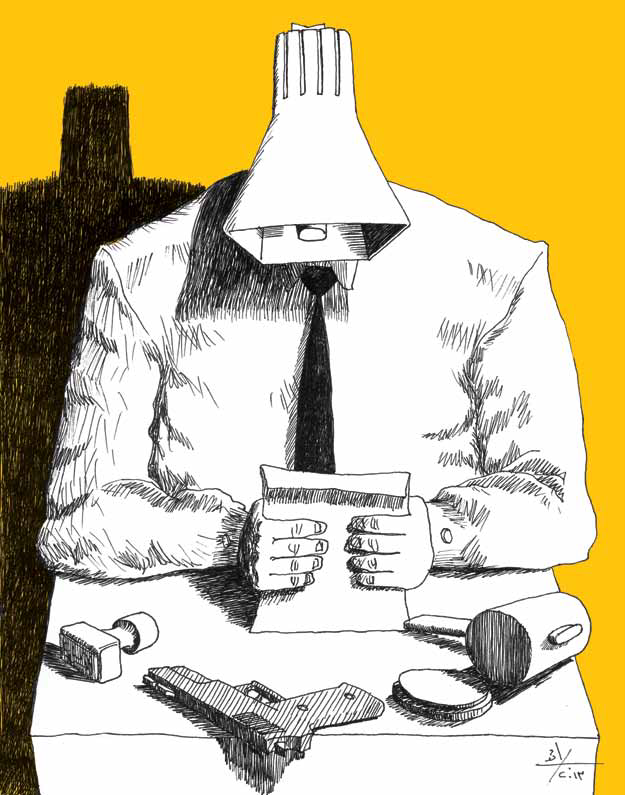The Policy of Combating Slavery in Mauritania: A Critique

Since its independence, Mauritania’s successive regimes have generally downplayed the phenomenon of slavery, adopting a policy of denial and imposing a blackout of sorts. They claim that what is left of slavery in Mauritania nowadays is merely a remnant of traditional custom. Accordingly, these governments maintain that their efforts in this matter are confined to combating those remnants and vestiges. Government opponents like human rights and anti-racism activists consider such a policy of denial a form of appeasement of traditional Mauritanian society that practices slavery, and an attempt to mislead the international community which pushes for an end to slavery in Mauritania. This article attempts to shed light and analyze three official approaches to tackle this phenomenon: legislative, judicial, and administrative.
Legislative Approach to Address Slavery
This approach is based on conceiving the problem as one stemming from the lack of legal provisions that criminalize slavery and servitude in the modern Mauritanian state, whose most important founding principles are freedom, equality, and justice for its citizens. It followed that the remedy consisted of enacting deterrent legislative texts. Several such texts were produced, the most prominent of which, in descending order of significance, are the following:
Texts abolishing slavery as a social system that has persisted within traditional Mauritanian society, while ensuring compensation to slave owners, as provided for in Legal Order No. 234/81 of November 9, 1981.
Marginally-relevant and opportunistic texts which timidly criminalize phenomena similar, but not identical, to slavery – such as human trafficking. These texts were passed as a result of pressure placed by human rights organizations, activists, and the international community to fight human trafficking. Hence, Mauritania ratified the international treaty against human trafficking, without criminalizing their enslavement. Such language is found in Act. No. 025/2003 (Act on Suppression of Trafficking in Persons), July 17, 2003.
Texts explicitly criminalizing slavery and all servile practices, under an act passed on September 3, 2007 during the period when a transitional government was in power. Notably, the law imposes a maximum prison sentence of 10 years, which significantly weakens the level of criminalization. Thus, the legislator has dealt with this crime in a moderate manner, adopting procedures of investigation, prosecution, and limitation prescription is applied to ordinary crimes, especially in relation to rendering the investigation of slavery compulsory. This is the case since conducting an investigation is only obligatory in crimes listed in Article 71 of the Code of Criminal Procedure. These include crimes in which a conviction can lead to the death penalty, a sentence of up to 30 years or life in prison, and offences committed against juveniles. Accordingly, unless the servitude pertains to a juvenile, conducting an investigation is not mandatory. It is worth noting that in contrast to the light penalty decreed for enslavement, over 10 articles of the Mauritanian Criminal law stipulate the death penalty as punishment for most crimes involving moral turpitude, something Mauritanian legislators, despite international opposition, boast about.[1]
Texts constitutionalizing criminalization by prohibiting slavery and torture, and considering them as obsolete imprescriptible practices against humanity. This is stipulated in the new Article No. 13 of the Constitutional Law as Amended, promulgated on March 20, 2012, and in Law No. 011/2013 dated January 23, 2013, stipulating punishment for crimes of slavery and torture as crimes against humanity.
Mauritanian legislators apparently handle this phenomenon with some form of impunity. At times, they try to raise the penalty and lower the level of criminalization, as is the case in the September 3, 2007 law; and at other times, they try to raise the level of criminalization by making the crime of enslavement a crime against humanity, imprescriptible and stipulated in the Mauritanian Constitution, yet decree a light punishment which neither acts as a deterrent nor is it proportionate to the severity of the crime. This deliberate contradiction shows that Mauritanian legislators are not serious about criminalizing and punishing this crime, which they describe as a crime against humanity.
Judicial Treatment of Slavery
Although the Mauritanian Constitution guarantees the independence of the judiciary and the separation of powers, the judiciary in Mauritania is not fully independent especially in dealing with servile crimes, for the following reasons:
The career path of judges is subject to decisions made by the Supreme Judicial Council, headed by the head of state. Some of the Council’s decisions, such as the appointment of judges, are based on the recommendation of the minister of justice who is part of the executive authority.
The Mauritanian judiciary is a two-tier system. It is divided into sitting judges, who deliver sentences, and standing judges -who are prosecutors- take orders directly from the minister of justice and control the indictment division directly, investigate cases they deem worthy, and assess minutes recorded by the judicial police who refer them to the state attorney general. The latter then decides whether or not to follow up on the case at hand. This is generally the norm in the judiciary dealing with criminal matters in Mauritania. Therefore, cases that make it to the court of sitting judges are restricted to those that are in line with the political will of the executive power, which, through its “long arm”, namely public prosecution, has control over the filing of lawsuits in relation to crimes of slavery.
A lack of a sense of responsibility and disregard for slavery-linked offenses. Facts presented to the prosecution and the judiciary are not dealt with seriously, especially since penal justice primarily depends on the judge’s convictions and their understanding of the circumstances of the case.
A lack of a human rights culture among judges and judicial police officers. The deference of these officials to their traditional society prompts them to cover-up or water-down the seriousness of any incident reported. A comparison of how judges deal with the crime of pickpocketing versus that of enslavement may illustrate the point. When it comes to pickpocketing, members of marginalized groups of society are often sued and judges deal with them hard-handedly, rarely making use of the offender’s right to parole in the course of investigation. By contrast, enslavement crimes are handled with leniency and all sorts of parties intervene so that the offender is able to gain parole in the course of investigation. Such cases will often be forgotten before they are actually resolved. As a result of these double-standards, strict procedures and careful follow-up in cases of pickpocketing lead to overcrowding in prisons, while offenders accused of servile crimes get away with it.
Provisions stipulating punishment for the crime of enslavement are not enforced. Only petty fines, too low compared to other penalties decreed by the penal code, are imposed. Moreover, such offences are not considered the type to warrant reporting and automatic inspection by the judicial police, as is the case in other crimes inspected by judicial and administrative officers.
Administrative Approach to Addressing Slavery
Mauritania’s successive governments have adopted different approaches to try and solve the issue of slavery. Yet they all have one thing in common: avoiding an objective approach. The stages of dealing with this issue include the following:
First phase (1960-1978): ِAdministrative authorities always dealt favorably with the traditional authorities in the society, despite the provisions of the Constitution providing for freedom and equality. Action in this regard was limited to circulars to the administrative authorities.
Second phase (1978-2006): The administrative authority adopted a policy of denial and cover-up of the issue of slavery, especially under the predominance of one group of Mauritanian society and its control over the regional administration, the majority of ministerial portfolios and administrative security posts in the state.
Third phase (2006- present day): This phase has witnessed several attempts, as follows:
An attempt to take into account the increasing calls by human rights activists to condemn this phenomenon. This pressure has forced the Mauritanian authorities to think of a way out of this issue; one that would please the international community while accommodating traditional groups who cling to enslavement as a traditional practice. Thus, Mauritanian governments have insisted that existing enslavement is merely the manifestation of traditional practices further sustained by deteriorating economic conditions. A ministerial committee was thus established to develop a national strategy to combat the vestiges of slavery, under a decree issued on October 12, 2006. The committee’s work never saw the light and is unlikely to continue after the timid passing of the above-mentioned 2007 law on combating slavery.
An attempt to reform the justice system given that it is the body entrusted with the implementation of slavery-related legislation. During the transitional period of rule, a ministerial committee was formed and assigned with this reform task under a decree issued on August 26, 2005. Public discussions continued, the most important of which took place in the period between September 17 and October 19, 2012 at the Conference Palace, between the presidential majority and the opposition. The dialogue resulted in the formation of a public institution called the National Agency to Fight against the Vestiges of Slavery, Integration, and Fight against Poverty “Tadamoun” [Arabic word for solidarity], under the decree of March 28, 2013, in addition to the previously mentioned constitutional amendments. This agency was established on the ruins of the National Agency to Support the Integration of Refugees (ANAIR), which was created under the decree of January 30, 2008. Although this agency is called “Tadamoun”, the decree under which it was established limited its task to fighting the vestiges of slavery. This clearly shows the persistence among successive governments of the denial that this phenomenon is a real practice.
In an effort to prompt the judiciary to take the combating of slavery seriously, a special criminal court was established for slavery crimes to pursue and prosecute such type of offenses. This was carried out on December 29, 2013 under a decision by the Supreme Judicial Council. The establishment of this court is a luxury, as long as the crime of slavery remains subject to the same legal procedures, including follow-up, investigation, and trial, that traditional crimes are subject to. Establishing such a court is also futile, since it was established on the basis of erroneously diagnosing the problem, and blaming it solely on judges. Moreover, failure to give human rights organizations intervenor status -being a civilian party in these cases- further undermines the usefulness of this court because it limits its role to trial. In the absence of an independent public prosecution, the administrative authority will remain the arbiter of which cases are referred to this court. In addition, the location of this court in the country’s capital, Nouakchott, is counterproductive. Many litigants of enslavement cases reside in areas as far as 1,200 km from Nouakchott. Instead of setting up these courts, it would have been better to activate the already-existing criminal courts by appointing qualified independent judges, and to activate the role of the public prosecution and the regional administrative authorities.
This article is an edited translation from Arabic.
__________
[1] Articles 12, 67, 92, 287, 275, 279, 410, 354, 307, and 308.



